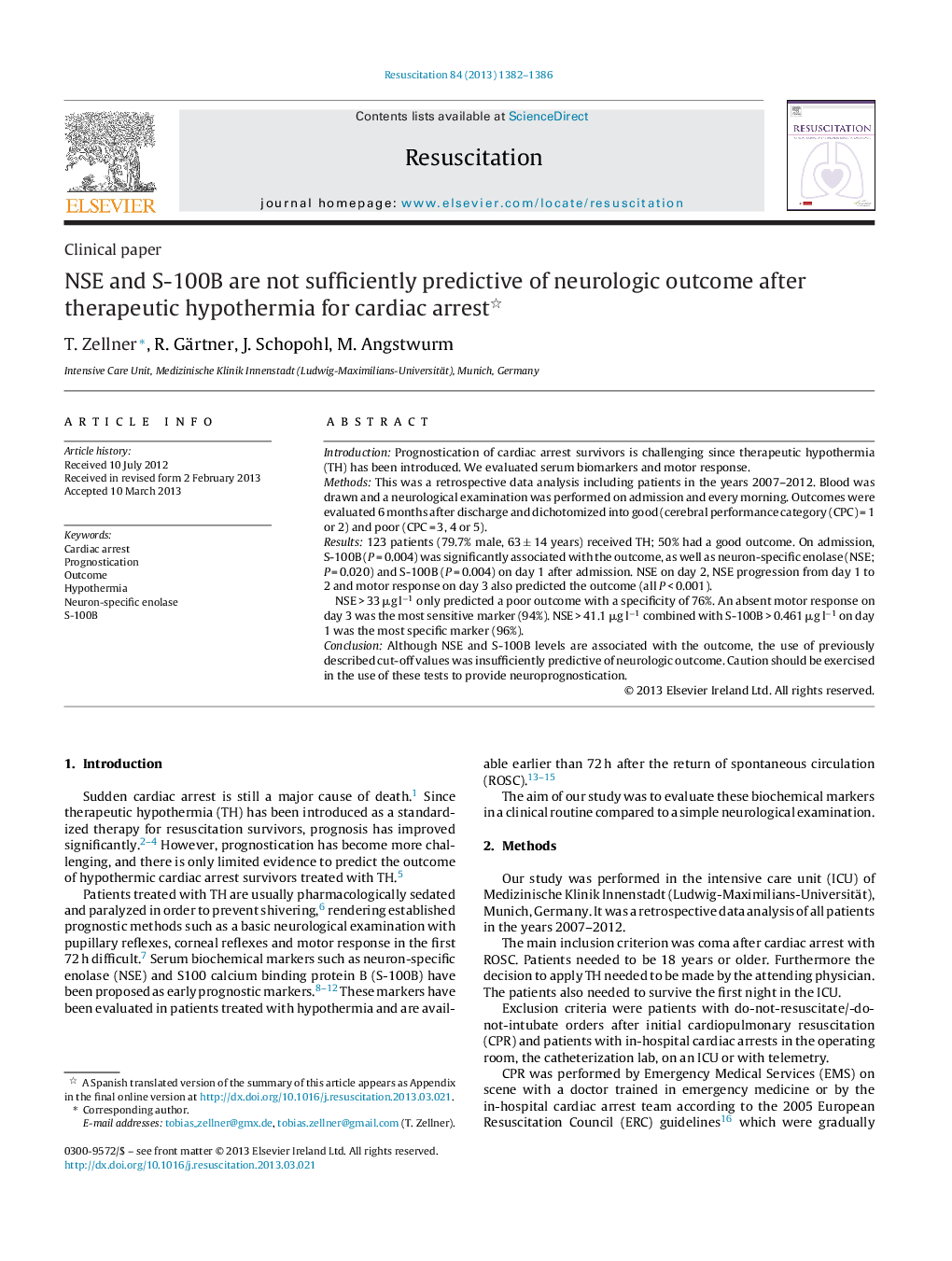| Article ID | Journal | Published Year | Pages | File Type |
|---|---|---|---|---|
| 3008077 | Resuscitation | 2013 | 5 Pages |
IntroductionPrognostication of cardiac arrest survivors is challenging since therapeutic hypothermia (TH) has been introduced. We evaluated serum biomarkers and motor response.MethodsThis was a retrospective data analysis including patients in the years 2007–2012. Blood was drawn and a neurological examination was performed on admission and every morning. Outcomes were evaluated 6 months after discharge and dichotomized into good (cerebral performance category (CPC) = 1 or 2) and poor (CPC = 3, 4 or 5).Results123 patients (79.7% male, 63 ± 14 years) received TH; 50% had a good outcome. On admission, S-100B (P = 0.004) was significantly associated with the outcome, as well as neuron-specific enolase (NSE; P = 0.020) and S-100B (P = 0.004) on day 1 after admission. NSE on day 2, NSE progression from day 1 to 2 and motor response on day 3 also predicted the outcome (all P < 0.001).NSE > 33 μg l−1 only predicted a poor outcome with a specificity of 76%. An absent motor response on day 3 was the most sensitive marker (94%). NSE > 41.1 μg l−1 combined with S-100B > 0.461 μg l−1 on day 1 was the most specific marker (96%).ConclusionAlthough NSE and S-100B levels are associated with the outcome, the use of previously described cut-off values was insufficiently predictive of neurologic outcome. Caution should be exercised in the use of these tests to provide neuroprognostication.
